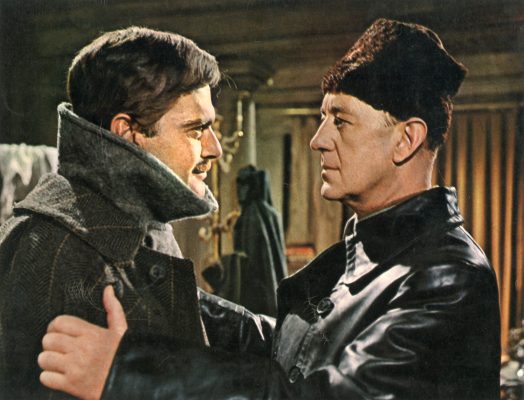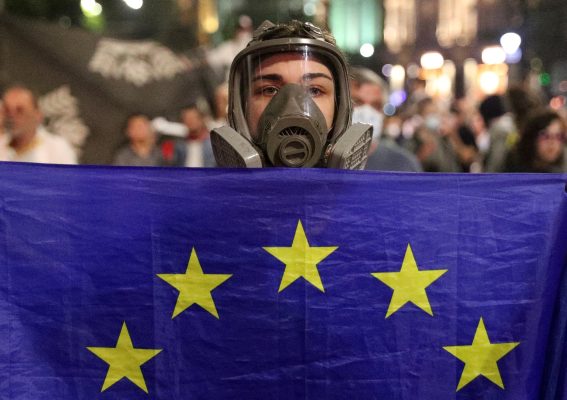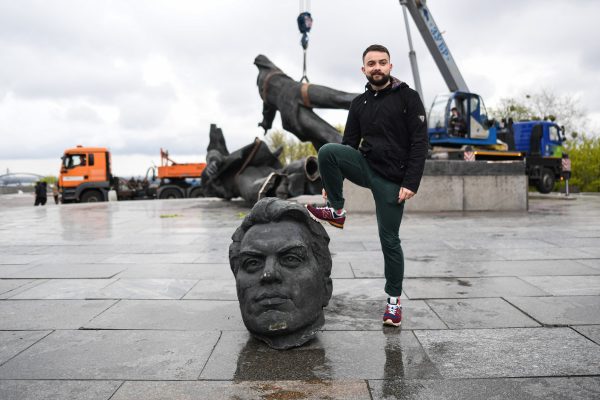Russia’s war in Ukraine is getting uncomfortably close to Romania and has had a detrimental effect on security in the Black Sea region, Romanian Foreign Minister Luminița Odobescu told the CEPA Forum on September 27.
In recent weeks, Russia has attacked Ukrainian ports on the Danube River, close to the border with Romania; Russia has threatened commercial navigation in the Black Sea; and pieces of Russian drones, similar to those used in the war in Ukraine, have been found on Romanian territory. Speaking of the drone debris, Odobescu said: “This is very serious because it’s also a violation of our airspace.”
Earlier this month, Romanian President Klaus Iohannis demanded an “urgent and professional investigation” into the origin of the drone debris.
Odobescu expressed concern about the fallout of Russia’s war in Ukraine. “All these attacks are very close to the Romanian borders, on the civilian infrastructure, on the innocent people,” she said.
Romania has played an instrumental, yet understated, role in supporting Ukraine and resisting Russian influence. In a pre-recorded conversation with Tania Lațici, a senior fellow at CEPA, Odobescu reiterated Romania’s support for Ukraine. “Russia started an illegal, brutal, and unjustified war against Ukraine. We are the neighbor of Ukraine and our… strong commitment is to support Ukraine as long as it takes,” she said.
Romania backs Ukrainian President Volodymyr Zelenskyy’s peace plan that, among other things, seeks the restoration of Ukraine’s territorial integrity and the withdrawal of Russian troops. Odobescu described the plan as “the right proposal for a just and long-lasting peace.” She said it is important that peace be on Ukraine’s terms.
The minister highlighted the significance of defense and security efforts within the Black Sea Region—noting that it is vital for the security of not just Ukraine, but also Moldova and Georgia, and maintaining the rules-based order.
Odobescu outlined several steps that are being taken to enhance deterrence and defense in the Black Sea region. For example, Romania hosts a French-led NATO battlegroup; the US military presence in Romania has tripled to more than 3,000 US troops since the start of Russia’s war against Ukraine in February 2022; NATO has stepped up air policing and air patrolling missions jointly with Romanian forces; and four US F-16 fighter jets arrived in Romania this month to further advance security in the Black Sea region.
Romania has played a key role in augmenting grain transit capacities following Russia’s withdrawal from grain deals. Bucharest is also supporting the anticipated European Union accession talks for Ukraine and Moldova.
Besides international governments, nongovernmental organizations have also been involved in providing aid to Ukraine. In pre-recorded remarks broadcast to the CEPA Forum on September 26, Dora Chomiak, CEO of Razom, discussed how her organization provides vital support to Ukrainians in the form of aid, educates the public on how to use that aid and advocates in Washington.
“Our approach in all of that is ‘Go Ukrainian,’ so we try and procure as much as we can from manufacturers in Ukraine,” Chomiak said, explaining that by doing so “we’re simultaneously strengthening the economy and building the fabric of the civil society” in Ukraine.
Europe’s Edge is CEPA’s online journal covering critical topics on the foreign policy docket across Europe and North America. All opinions are those of the author and do not necessarily represent the position or views of the institutions they represent or the Center for European Policy Analysis.





